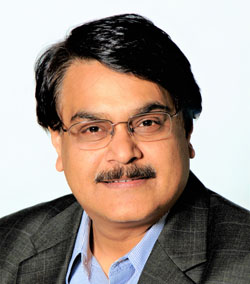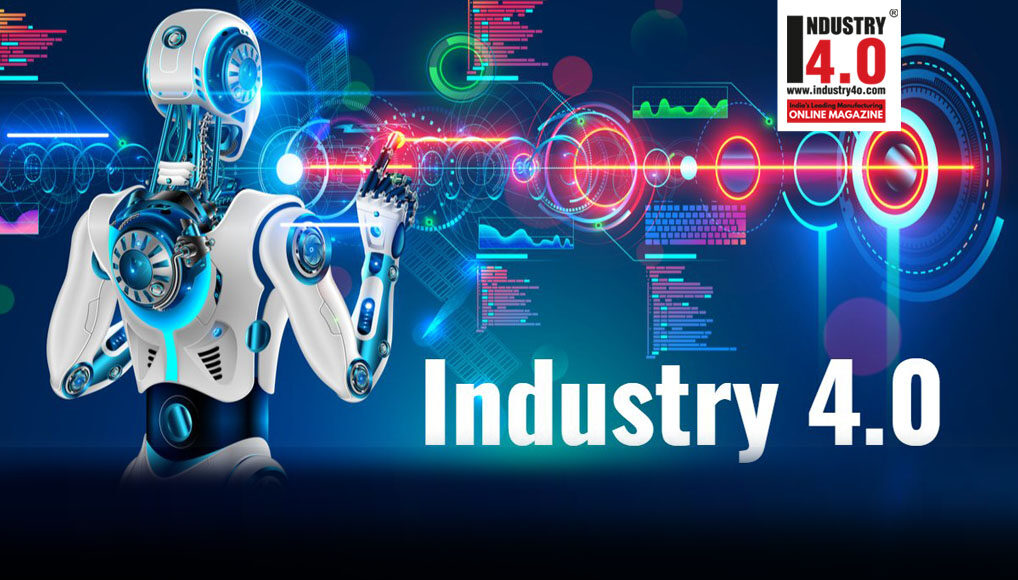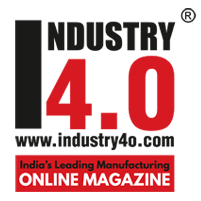Begin with the end in mind
We sense a great change in affairs, an overthrow of established political, economic, and social systems – that is what a revolution does; it boggles our mind in chaos, and there are great pearls of opportunities and consequences in the mess that follows. Indeed Industry 4.0 is a mind boggling revolution. How to survive and thrive is on my mind, and the short answer is to be mindful.
The meaning of mindfulness varies from the East to the West,within cultures, and among societies. In and of itself,out of mind; mindfulness is a paradox as it can mean to empty your mind by using your mind, i.e., meditation.So there must be a longer answer to how to survive and thrive in the Industry 4.0 revolution – unpacking a longer answer is the purpose of this writing, and it does so from the viewpoint of Current Good Manufacturing Practices (CGMP) in the Pharma sector.
 The pharmaceutical [industrial] revolution is a special subset of the industrial revolutions 1.0, 2.0, 3.0, and 4.0. We can think of it as a scale-up from compounding pharmacy to industrial pharmacy under an evolving regulatory paradigm [1,2]. The notion of a revolution amidst evolving regulatory schema seems a mismatch and so noted by my former colleagues at the US FDA: “The adoption of the advanced manufacturing technologies of Industry 4.0 may pose challenges to the current regulatory framework because most regulations were developed in an Industry 2.0 paradigm of traditional batch manufacturing” [3]. Perhaps this challenge is an opportunity to meditate, be mindful,warn and be aware, and be wise to naturally qualify [artificial] materials, machines, mandates, and minds to navigate the revolution we call Industry 4.0.
The pharmaceutical [industrial] revolution is a special subset of the industrial revolutions 1.0, 2.0, 3.0, and 4.0. We can think of it as a scale-up from compounding pharmacy to industrial pharmacy under an evolving regulatory paradigm [1,2]. The notion of a revolution amidst evolving regulatory schema seems a mismatch and so noted by my former colleagues at the US FDA: “The adoption of the advanced manufacturing technologies of Industry 4.0 may pose challenges to the current regulatory framework because most regulations were developed in an Industry 2.0 paradigm of traditional batch manufacturing” [3]. Perhaps this challenge is an opportunity to meditate, be mindful,warn and be aware, and be wise to naturally qualify [artificial] materials, machines, mandates, and minds to navigate the revolution we call Industry 4.0.
Qualifying materials, machines, mandates, and minds, naturally
Good practices to manufacture pharmaceuticals as medicine and broadly, the life science sector needs to be mindful of qualifying professionals. When licensing practitioners, we, the public, can trust them to care for our health and patients when diseased. For instance, the US Food, Drug, and Cosmetic Act of 1938 was amended in 1962, the Kefauver–Harris Amendment, to emphasize, among other things, scientific training and experience to make decisions on effectiveness(which is an expectation before the approval or authorization of a new medical product) fairly and responsibly [4].
So then,sixty years later, in the 2020s, what extent do we trust? Reports such as Poll Finds Public Health Has a Trust Problem[5] are perhaps just the “tip of the iceberg,”indeed, we have a major “trust deficit” [6, 7]. It is not a new phenomenon;for instance, the British Medical Journal noted in 2016 that Medical errors- [are]the third leading cause of death in the US[7]. I wonder how the NIH can claim COVID-19 was the third leading cause of death in the United States in 2020 and 2021 [8].
It boggles my mind, so I ask what is missing in our scientific training and experience,professional qualification, and practitioner licensing.“The pharmaceutical industry has a little secret,”noted the article “New Prescription For Drug Makers: Update the Plant”on the 3 September 2003 cover page of the Wall Street Journal [9], the secret, even as it invents futuristic new drugs, its manufacturing techniques lag far behind those of potato-chip and laundry-soap makers.Surprisingly I think the answer is naturally in qualifying materials, machines, mandates, and minds
What comes naturally? Welcome to the Experience Economy!
In manufacturing, we are familiar with IQ, OQ, and PQ, i.e., installation, operational, and process qualification for a machine. Many pharmaceutical unit operations are “physical,” milling, blending, granulation, and compaction. However, we qualify incoming raw materials based on a“Certificate of Analysis” concerned primarily with identity, purity, and impurities.Concerns about process ability and lot-to-lot variance are discounted or accounted for intermittently, perhaps similar to how we account for experience – in qualifying scientific training and experience. Counting years of on-the-job training and experience are probably necessary but certainly insufficient to gauge suitability and capability analogous to these terms familiar to us from SPC or statistical process control.
Experience means to feel; in a professional setting, we remind ourselves not to take things personally;why? Emotions can often be irrational.As the 20th century ended, we welcomed the experience economy, business models evolved to value and mine our experience [10], and the rich got richer. Don’t you think it is now necessary that we know to learn from the experience?
Industry 4.0 is a mind boggling revolution
The first industrial revolution ushered in machines that could produce faster and better than humans.The fourth industrial revolution is making machines and artificial intelligence that will soon be preferred over human intelligence. What humans can do is an open question, particularly in the post-truth world “we are all becoming stupider, on a relative basis,”while at the same time, in our trust deficit,“we have had enough of experts” [11]. The first industrial revolution occurred under the Imperialist mindset that held on to colonized lands and established “Robber Barrons” [12]. Can we afford to progress Industry 4.0 with the same attitude? No, the fourth industrial revolution is on our watch; naturally, we must be SMART [12].
Naturally, SMART within
As some migratory birds navigate in the darkness using an internal “magnetic compass,” let us utilize feelings (experience) as our compass to guide progress, correcting irrationality, naturally SMARTly. We need to smartly go beyond our education and training to learn from experience and continuously empower our development in moments. In moments we gain smart insights into the chaos of resetting worldviews, knowing and minding what good means in the digital & real world.To facilitate experiential learning, we must change how we feel, think, and act synchronously; we need to be our SMART Shepherd [13]. SMART as self-monitoring our thoughts, feelings, and actions analyzing deviations from what we value, and reporting to self and our confidants our struggles and aspirations promptly, on time, so as not to fall back.
Don’t let falling back in this revolution colonize your minds.Set for self-development SMART objectives, i.e., specific, measurable, achievable, relevant, and timely (or Time-bound). Don’t wear the label “a carbon footprint”and be a target to be reduced.
References
1. The Nation Needs a Comprehensive Pharmaceutical Engineering Education and Research System. Pharmaceutical Technology, September 2005.
https://ispe.org/sites/default/files/membership/students/2021/ViewpointPE%20(Hussain)%20(2005).pdf#:~:text=The%20Nation%20Needs%20a%20Comprehensive%20Pharmaceutical%20Engineering%20Education,health%20objectives%20and%20to%20maintain%20a%20competitive%20industry.
2. US FDA White Paper: Innovation and continuous improvement in pharmaceutical manufacturing: pharmaceutical CGMPs for the 21st century. The PAT team and manufacturing science working group report: a summary of learning, contributions, and proposed next steps for moving towards the “desired state” of pharmaceutical manufacturing in the 21st century. September 2004.
https://wayback.archive-it.org/7993/20170405121836
https://www.fda.gov/ohrms/dockets/ac/04/briefing/2004-4080b1_01_manufSciWP.pdf.
3. Industry 4.0 for pharmaceutical manufacturing: Preparing for the smart factories of the future:
https://www.sciencedirect.com/science/article/pii/S0378517321003598
4. The 50th anniversary of the Kefauver-Harris Amendments: Efficacy assessment and the randomized clinical trial.
https://pubmed.ncbi.nlm.nih.gov/23126358/
5. Poll Finds Public Health Has A Trust Problem. https://www.npr.org/2021/05/13/996331692/poll-finds-public-health-has-a-trust-problem
6. American public health institutions need to rebuild public trust, University of Idaho research finds.
https://idahocapitalsun.com/briefs/american-public-health-institutions-need-to-rebuild-public-trust-university-of-idaho-research-finds/
7. Effects of trust, risk perception, and health behavior on COVID-19 disease burden: Evidence from a multi-state US survey. PLOS ONE :
https://dx.plos.org/10.1371/journal.pone.0268302
8. COVID-19 was the third leading cause of death in the United States in both 2020 and 2021. NIH Media Advisory.
https://www.nih.gov/news-events/news-releases/covid-19-was-third-leading-cause-death-united-states-both-2020-2021
9. New Prescription For Drug Makers: Update the Plants. The WSJ, 3 September 2003.
https://www.wsj.com/articles/SB10625358403931000
10. Welcome to the Experience Economy. Harward Business Review (1998).
https://hbr.org/1998/07/welcome-to-the-experience-economy
11. The Post-Truth World – Why Have We Had Enough Of Experts?Forbes. 22 May 2017.
https://www.forbes.com/sites/lbsbusinessstrategyreview/2017/05/22/the-post-truth-world-why-have-we-had-enough-of-experts/?sh=7a8e356754e6
12. The Robber Barrons.
https://www.encyclopedia.com/history/encyclopedias-almanacs-transcripts-and-maps/robber-barons-0
13. M.A.R.T Pharmaceuticals 2021-2030. Express Pharma. 11 January 2022.
https://www.expresspharma.in/amp/s-m-a-r-t-pharmaceuticals-2021-2030/
14. SMART Shepherding Practices Newsletter. LinkedIn.
https://www.linkedin.com/newsletters/smart-shepherding-practices-6885851484559302656/
About the Author:

Dr. Ajaz S. Hussain, Ph.D., is an independent advisor to several technology companies, such as Valgenesis and Applied Material and biopharma companies,focusing on ensuring the validity of evidence for quality,safety, and efficacy amidst the chaos, uncertainty, and the revolution “Industry 4.0.” His experience spans academia, the US FDA, and industry.
Formerly he served as the President of the National Institute of Pharmaceutical Technology and Education (NIPTE), CSO and President Biotechnology at Wockhardt Ltd, CSO and VP Next Generation Products Philip Morris International, Global Head Biopharmaceutical Development at Sandoz, Deputy Director Office of Pharmaceutical Science, CDER FDA, Associate Professor (tenured) at the University of Cincinnati and Assistant Professor of Pharmacy at the Ohio Northern University.
He is a Fellow of the American Association of Pharmaceutical Scientists and the Swiss Society of Pharmaceutical Sciences. He trained as a pharmacist at the Bombay College of Pharmacy, India, and received his Doctoral degree from the University of Cincinnati. He is passionate about making high pharmaceutical quality affordable. To do so, he strives to help professionals develop and be self-assured to deliver assurance of quality and validity of evidence to substantiate their claims.
He shares his insights on these topics worldwide in his LinkedIn page :
https://www.linkedin.com/in/aj
He is bestowed with the following Awards :
https://www.linkedin.com/in/aj
He can be Contacted at :
LinkedIn : https://www.linkedin.com/in/aj
Email : [email protected] / [email protected]










